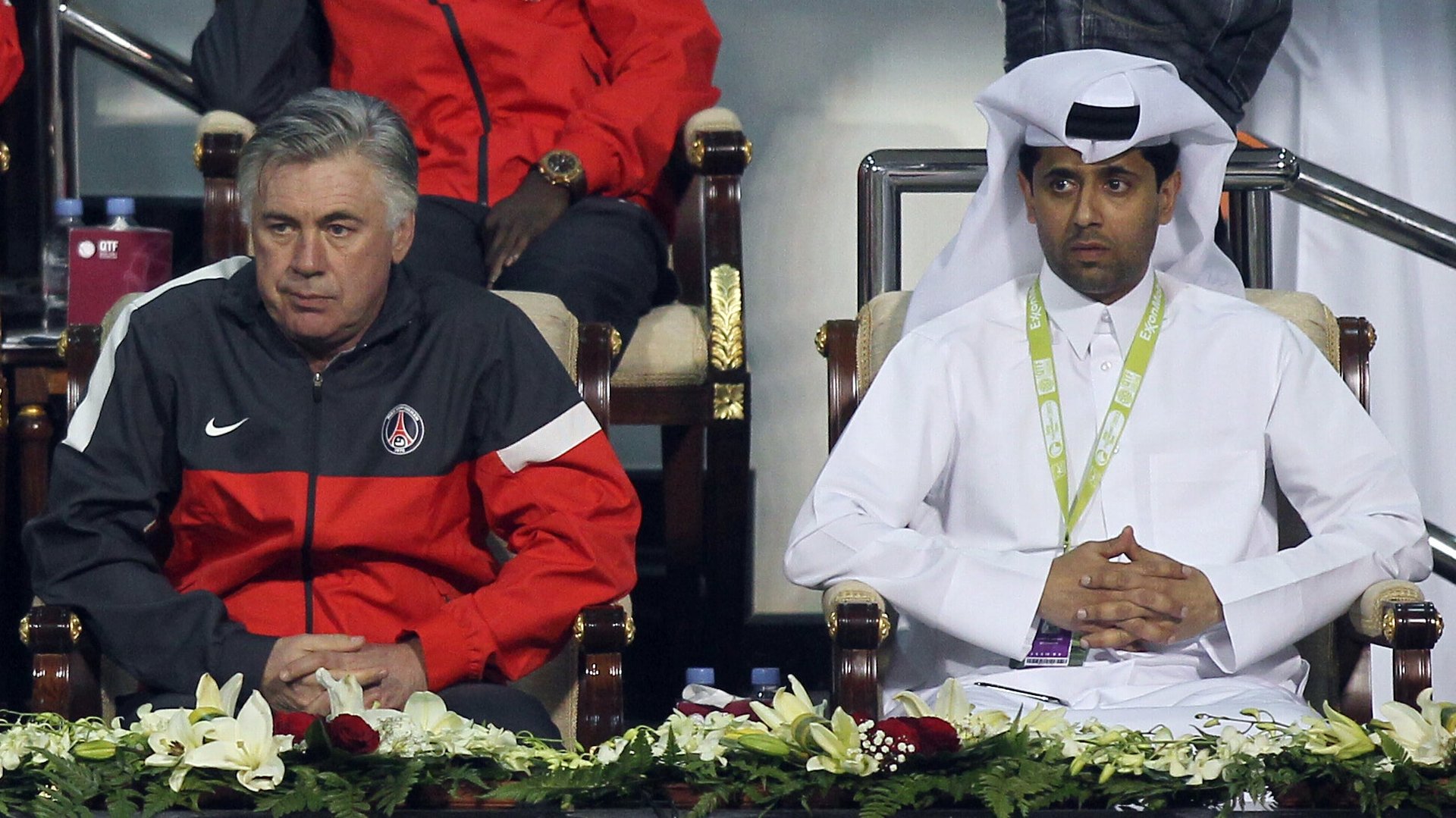Qatar’s investment propels PSG from awful to the Champions League quarterfinal
French soccer club Paris Saint-Germain is playing today in the quarterfinal of the Champions League—the first time the team has made it that far since 1995. The secret to PSG’s sudden success: an influx of cash from the Qatari royal family.


French soccer club Paris Saint-Germain is playing today in the quarterfinal of the Champions League—the first time the team has made it that far since 1995. The secret to PSG’s sudden success: an influx of cash from the Qatari royal family.
Qatar, which won an improbable bid to host the World Cup in 2022, bought 70% of PSG in 2011 and the remaining 30% last year, vowing to win European championships after decades of struggling to avoid a downgrade into the lower leagues of French soccer. To do that, Qatar has invested over $195 million in PSG this season, turning it into the highest-spending club in Europe and replicating a model pioneered by other oil-rich Middle East nations with a taste for soccer.
The players leading the team this season, striker Zlatan Ibrahimovic and defender Thiago Silva, were both acquired from AC Milan for a combined $84.4 million. Ibrahimovic is now the best paid player in France, with an annual salary of €14 million ($17.9 million).
PSG also signed David Beckham to a five-month contract for €800,000 ($1 million) a month, a ploy that has less to do with his skill on the field than with jersey sales and attendance, which have soared along with his arrival. The draw for the Champions League quarter-final against FC Barcelona was unprecedented: Almost a million people tried to obtain tickets for the game; the PSG stadium can only fit 45,000.
No other soccer club in France has the means to compete with oil-rich PSG, raising hackles within the country, and now it may be a problem across the continent, as well. Starting next season, the Union of European Football Associations (UEFA) will impose “financial fair play” rules, forcing clubs to spend only as much as they earn.
Qatar may try to circumvent this measure with the new Qatar Tourism Authority fund, a sponsorship deal that will give PSG an additional €200 million ($255 million) per season. Officially, this “publicity agreement” is meant to promote the image of Qatar. But officials have warned PSG that it will have to prove the fund isn’t a way around the new rules.